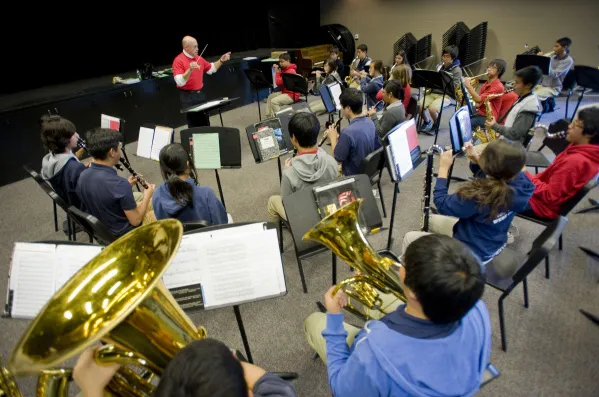Introduction
In today’s rapidly changing world, education is no longer just about academic achievement. While strong academic foundations are important, a well-rounded education — one that encompasses extracurricular activities, emotional intelligence, and social development — plays a crucial role in shaping well-prepared, balanced individuals. The benefits of a well-rounded education go far beyond the classroom, preparing students for challenges in their personal, professional, and social lives.
In this article, we will explore the numerous benefits of a well-rounded education and why it is essential for students’ overall development.
1. Development of Critical Life Skills
A well-rounded education provides students with the opportunity to develop critical life skills that are often not taught in a traditional academic setting. These skills include problem-solving, time management, communication, teamwork, and leadership. Such skills are essential for success in both professional and personal environments.
1.1. Time Management
Participating in extracurricular activities such as sports, music, or clubs teaches students how to balance their time effectively. They learn to prioritize tasks, meet deadlines, and manage their commitments. These time management skills are invaluable when they enter the workforce or pursue further education.
1.2. Communication and Teamwork
Activities like group projects, sports, and volunteer work encourage students to communicate clearly, listen actively, and collaborate with others. These interpersonal skills are essential for building strong relationships, whether in the workplace or in social settings.
1.3. Leadership Development
Extracurricular activities often allow students to take on leadership roles. Whether it’s leading a school club, organizing a charity event, or captaining a sports team, these experiences teach valuable leadership skills such as decision-making, motivating others, and taking responsibility for outcomes.
2. Emotional and Social Development
A well-rounded education helps students grow emotionally and socially, fostering qualities such as empathy, resilience, and confidence. These qualities contribute to emotional well-being and the ability to navigate life’s challenges.
2.1. Emotional Intelligence
Extracurricular activities help students build emotional intelligence by exposing them to diverse situations that require empathy, self-awareness, and social skills. Whether they are volunteering in the community, working on group projects, or engaging in artistic pursuits, students learn to understand their own emotions and the emotions of others.
2.2. Resilience and Stress Management
Students who engage in a variety of activities, including sports or arts, often experience both success and failure, which builds resilience. Learning how to cope with setbacks, manage stress, and keep trying after failures helps students develop a growth mindset that serves them well in adulthood.
2.3. Building Confidence
By participating in extracurricular activities and stepping out of their comfort zones, students gain confidence. Whether it’s performing in front of an audience or taking the lead on a project, these experiences help students realize their capabilities and develop a sense of self-worth.
3. Exposure to Diverse Interests and Talents
A well-rounded education allows students to explore a wide range of subjects and activities, enabling them to discover hidden talents or interests they may not have encountered otherwise. This exposure can spark passions that shape their future career paths or lifelong hobbies.
3.1. Exploration of Interests
By participating in music, art, theater, sports, or other non-academic activities, students have the opportunity to explore various areas of interest. This broadens their horizons and encourages them to find what excites them beyond traditional academics.
3.2. Identifying Talents and Strengths
In addition to academic subjects, students may discover natural talents in areas such as writing, athletics, design, or public speaking. Identifying these strengths early on can lead to future opportunities for personal growth, scholarships, or career options that align with their interests.
4. Fostering Creativity and Innovation
A well-rounded education encourages creative thinking, which is essential for innovation. Participation in creative activities like art, music, or drama stimulates imagination, which can lead to new ways of thinking and problem-solving.
4.1. Creative Expression
Engaging in the arts or other creative pursuits allows students to express themselves in ways that academics might not. Whether through painting, music, writing, or theater, students can channel their emotions and ideas creatively, enhancing their ability to think outside the box.
4.2. Innovative Problem Solving
Creative experiences encourage students to approach challenges with an open mind. As they engage in activities that require original thinking, they develop skills in innovative problem solving. This is crucial in the rapidly changing job market, where employers value creative thinkers who can develop novel solutions.
5. Building a Strong Sense of Community and Belonging
A well-rounded education fosters a sense of community and belonging by encouraging students to participate in social and extracurricular activities that involve their peers, teachers, and local communities. These experiences create a support network that extends beyond the classroom.
5.1. Team Spirit
Extracurricular activities such as sports teams or school clubs encourage teamwork, cooperation, and mutual support. Working toward a common goal helps students develop strong relationships with their peers and feel a sense of belonging.
5.2. Community Engagement
Volunteering and community service activities expose students to the needs and experiences of others. This can deepen their understanding of social issues and create a sense of responsibility toward others, promoting a culture of kindness, empathy, and civic engagement.
6. Better Academic Performance
Though a well-rounded education goes beyond academics, it can have a positive impact on a student’s academic performance. Students who participate in extracurricular activities are often better organized, more disciplined, and able to focus on their studies more effectively.
6.1. Improved Focus and Discipline
The skills learned through extracurricular involvement—such as time management, focus, and responsibility—can translate into improved performance in the classroom. Students who balance academics with other activities tend to have better discipline and the ability to manage their time efficiently.
6.2. Enhanced Problem-solving Skills
Extracurricular activities provide students with the opportunity to solve real-world problems, from managing a team project to organizing a school event. These problem-solving experiences enhance cognitive abilities, which can help students approach academic challenges with greater insight and creativity.
7. Preparation for the Future Workforce
In today’s competitive job market, employers are increasingly looking for candidates with diverse skills and experiences. A well-rounded education gives students an advantage by preparing them for a variety of roles in the workforce.
7.1. Transferable Skills
Skills like leadership, communication, creativity, and teamwork, developed through extracurricular activities, are highly valued in the workforce. A well-rounded education ensures that students are not only knowledgeable but also versatile and capable of thriving in a dynamic work environment.
7.2. Increased Employability
A well-rounded education gives students the ability to adapt to different work environments and challenges. Employers look for individuals who can contribute creatively, collaborate with others, and approach problems with a flexible mindset. These qualities give graduates a competitive edge when entering the job market.
Conclusion
The benefits of a well-rounded education extend far beyond academic performance. It nurtures a holistic development of students, helping them build life skills, emotional intelligence, creativity, and a strong sense of community. By exploring diverse interests, fostering resilience, and preparing for the workforce, a well-rounded education equips students to face the challenges of the future with confidence and adaptability.
For educators and parents, encouraging students to engage in activities beyond the classroom can have a profound and lasting impact on their personal and professional lives. Ultimately, a well-rounded education ensures that students are not just prepared for exams but for life itself.

